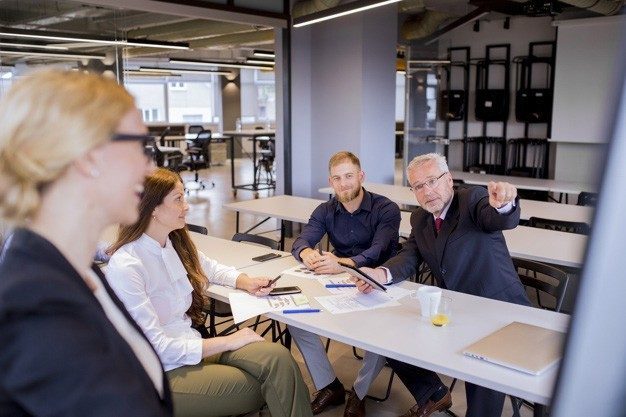Are Your Competitors Using Critical Thinking to Win?

Google ditched “worthless” grade-point-averages as a basis for hiring in 2013. Instead, they favor “general cognitive ability” and “learning ability”. Top employers like EY and PricewaterhouseCoopers have followed suit, and 93% of employers now agree that thinking skills are more important than grades.
It’s clear that thinking skills—specifically critical thinking skills like creative problem-solving and analytic reasoning—are the future of business. And, chances are, your competitors are already using these business skills to get ahead. The good news is there’s chance to catch-up.
We sat down with PeopleFactors’ CEO and global strategic executive coach Charlie Atkinson to explain why all businesses should be implementing critical thinking into their learning and development plans.
Why are critical thinking skills so crucial in 21st-century business?
CA: Confused, emotional and prejudiced thinking leads to misunderstanding and intolerance. In business this misunderstanding and intolerance manifests itself in poor communication, ineffective teamwork and unnecessary conflict.
For example, I once trained a CEO of an IT consulting firm who was an excellent critical thinker already, but because he didn’t know he thought differently to everyone else, his staff often got frustrated with him. His logic moved very quickly and he didn’t explain himself very well; he would reach a conclusion before his staff had finished explaining the problem. Even though they understood what decision he’d made, they didn’t know why he had made that decision, so weren’t learning from his choices.
We improved the critical thinking skills of his staff so that they understood his logic, and showed him what critical thinking is so that he thought more carefully about how he explained himself. This helped people get on board with him and encouraged independent thought; getting people aligned and working in the same direction requires you to be able to explain your actions.
Why do you think companies like Google and EY have moved toward thinking skills as a way to identify potential within recruitment candidates?
CA: Grade point average is a better indicator of work ethic than a predictor of business capability and performance; it doesn’t represent a person’s ability to problem solve, think innovatively, or to work with others. On the other hand, critical thinking is the foundation of these capabilities.
However, businesses would be mistaken to put too much emphasis on critical thinking specifically at graduate hire. Critical thinking can be taught; it’s not an innate ability, so it’s important to separate intelligence from skills like critical thinking that you can learn. Businesses should be looking for smart, fast learners who they can teach to think critically.
What benefits can critical thinking training bring to individual employees’ performance?
CA: Critical thinking is a fundamental transferable skill. It helps employees challenge assumptions and get to better solutions on their own. It also gives them clarity in identifying the key issues from irrelevant detail. By removing ‘gut feel’ and ‘intuition’ as justifications, it allows them to reach more rational and relevant decisions.
By improving critical thinking skills you become more persuasive and able to construct strong arguments. Managers will make better decisions and, crucially, they will explain those decisions to their team more effectively. It makes you a more efficient and more balanced employee.
Learn more about how PeopleFactors can support your internal and external talent goals, and take an On-Demand assessment.